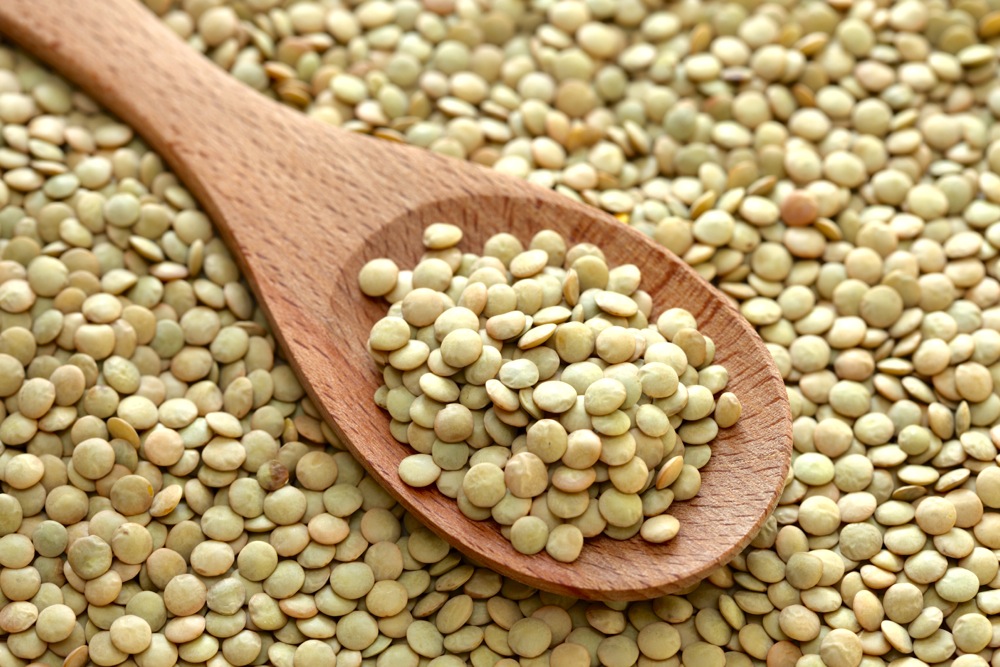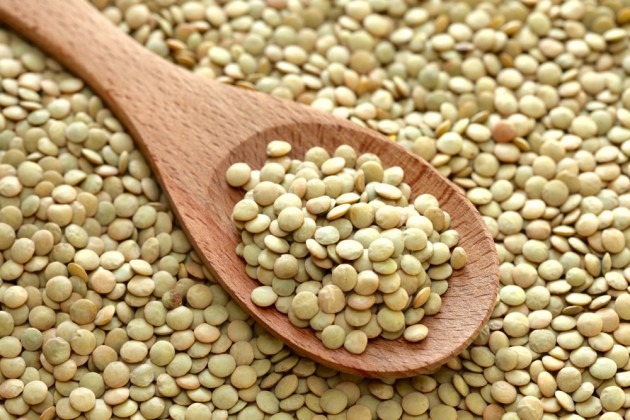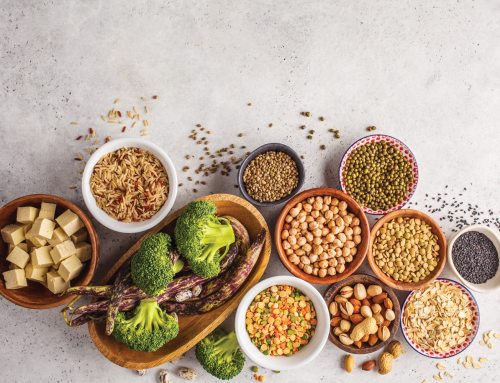Lentils are a small but nutritionally mighty member of the legume family. Not only do lentils help lower cholesterol, they also help in managing blood-sugar disorders since their high fiber content prevents blood sugar levels from rising rapidly after eating. In addition to those two important benefits, Lentils also are a good to excellent source of seven important minerals, B-vitamins, and protein. A cooked cup of lentils has 230 calories which will fill you up—not out!
Lentils contribute to heart health not just because of their fiber, but also because of the significant amounts of folate and magnesium they supply. Folate helps lower levels of homocysteine, an amino acid that damages artery walls and increases the risk for heart disease. The magnesium in lentils is also a plus in regards to cardiovascular health. Studies show that a deficiency of magnesium is not only associated with heart attack but that immediately following a heart attack, lack of sufficient magnesium promotes free radical injury to the heart.
In addition to providing slow burning complex carbohydrates, lentils can also increase your energy by replenishing your stores of iron. Particularly for women, who are more at risk for iron deficiency, eating lentils is a good idea because, unlike red meat, another source of iron, lentils are not rich in fat and calories. Iron is an integral component of hemoglobin, which transports oxygen from the lungs to all body cells, and is also part of key enzyme systems for energy production and metabolism.
So be sure to get your fill of heart healthy lentils!
Generally available throughout the year, lentils can be found in prepackaged containers or bulk bins. Since they do not need to be presoaked, you can prepare them the day of serving but, be sure to rinse them in a strainer prior to cooking. Lentils easily absorb flavors from other foods and seasonings which makes them relatively quick and easy to prepare.








